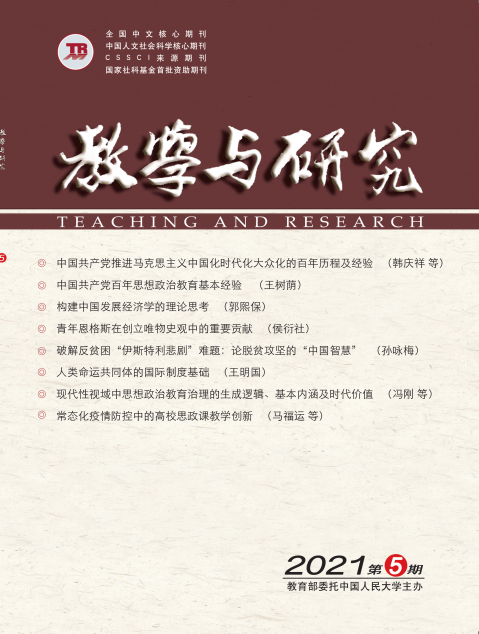|
|
The Innovation of Ideological and Political Teaching in Universities under Normalized Epidemic Prevention and Control
Ma Fuyun, Sun Xifang
2021, 55 (5):
96-104.
With epidemic prevention and control being normalized nationwide, the ideological and political teaching in colleges and universities should also be innovated and updated to keep up with the changing situations. Teaching innovations can be made in the following four aspects. First, innovation in mindset: a transformation is needed from passive acceptance to the breakthrough of the traditional conception of space, the reshaped role of teachers, the strengthened consciousness of the ideological front, and the establishment of longterm mechanisms. Second, innovation in content: it is necessary to attach more importance to the education on life, health and security, social responsibilities and missions, the Chinese spirit in the new era, and a community of a shared future for mankind, thus highlighting both teaching of theories and guidance of values. Third, innovation in method: virtual and actual means should be combined to complement each other; we can guide students' concerns through online interaction, improve education effectiveness through instant communication, enrich textbooks with antipandemic cases, integrate teaching resources through extracurricular practice, and realize the indepth unity of online and offline teaching. Fourth, innovation in management: we should build a platform that integrates online and offline teaching, improve teachers capacity of digital teaching, innovate the evaluation system about the ideological and political teaching, and construct a classroom ecology featuring positive interaction.
Related Articles |
Metrics
|



